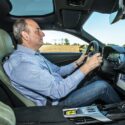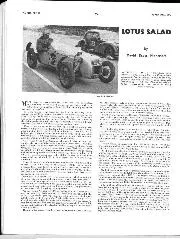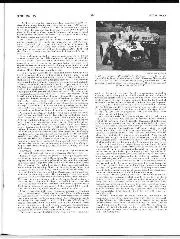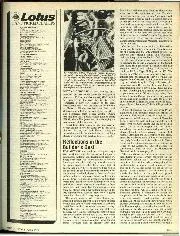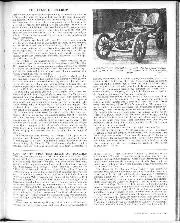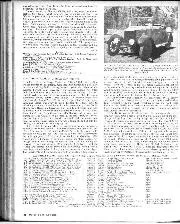It is perhaps a generational thing, but I find myself unable to get mildly enthused, let alone properly excited, about esports. When I was about nine years old, on Eastbourne pier, I remember finding an arcade game into which you put a two pence piece and got to drive a car around a track. Sure, the track was just a filmed projection and the car a tin model on the end of a bit of coat-hanger wire attached to the steering wheel, but I was doing esports 45 years ago.
And sometimes I still do. At Le Mans last year there were modern versions of the same concept in the Aston Martin Racing hospitality, where you could while away the hours ‘racing’ a GTE Pro Vantage around the track, which I found mildly diverting at first and, such is the way of these things, entirely engrossing as I improved. I’ve spent time in Toyota’s full-size simulator ‘driving’ its LMP1 prototype, tutored by Sébastien Buemi, and learned Monaco before racing there, with the help of Darren Turner’s Base Performance Simulators. Both of which were great until I nearly threw up.
So I can see the appeal of gaming. And though I’ve never done it, I can see how if you become far better at it than I, the idea of competing against other gamers might be interesting too. What I cannot see is the appeal of watching others do it. Whoever they are.
It is one step too far removed. To me, racing a car is the best pastime in the world, so good that, like millions the world over, I’ll happily spend quite a lot of time and money watching others do it. The competition appeals to something primal within me. But to watch other people pretend to do it? Where there is neither risk nor the real consequence of getting it wrong? Where nothing you’re looking at is real? I cannot see the point.
I wish I could, and I feel nothing but envy for those who can because they will have one more way than me of passing the time during lockdown. The consensus seems to be that esports are not as good as proper racing, but that it is better than nothing. Sadly, it’s not a view that I share.
To me, watching esports is not even like drinking alcohol-free beer: it’s like watching someone else drink alcohol-free beer.
Though you’ll likely be reading this in May, I am writing it in April, the month in which Max Mosley celebrated his 80th birthday. It is also by happy coincidence, the 50th anniversary of the first grand prix win by a March car, built by March Engineering, the company he founded with Alan Rees, Graham Coaker and the great Robin Herd.
I still find what March achieved as a Formula 1 debutant in that 1970 season one of the most extraordinary tales. At its first-ever race, the South African Grand Prix at Kyalami, Jackie Stewart put his Tyrrell-run March 701 on pole with Chris Amon second in the works car. Chris retired with an overheating engine early on while Jackie was let down by his Dunlops, but he still came home third to score a podium on the marque’s debut. Six weeks later, it was pole again at round two at Jarama for JYS, a race he led from flag to flag to score March’s first World Championship win. He was on pole in Monaco and again at Spa, only to be let down by his DFV on both occasions. That is the same number of poles achieved in the first four races of March’s very first season as the mighty Toyota managed in eight years in F1. And in all that time, Toyota did not win a single race.
“March’s fairy tale start did not have a very happy ending”
But Mosley does not boast. “We were really quite lucky,’ he told me a few years back. “The general view was no one would start a venture like ours without a huge amount of money. It meant suppliers were very relaxed about getting their bills paid because they thought we were sitting on a huge pile of cash…” They weren’t. “In September 1969, we had 10-20 people working in one unit. We had one metal bending machine and a lathe. That was it.”
Mosley kept the wheels on the bus by selling cars, three to Ken Tyrrell and one to each of Andy Granatelli and Colin Crabbe, while Porsche paid March a vast £30,000 to employ Jo Siffert. Why? “Jo was about to do a deal with Ferrari that would cover both sports cars and F1 and the only way Porsche could keep him in their sports cars was to put him in somebody else’s F1 car.”
Sadly this fairy tale start did not have a very happy ending. The 701 was fast but tricky, the trickiest F1 car Stewart ever drove. But it was a necessarily simple car, which left it with nowhere to go in development.
Perhaps the most honest view comes from Mosley: “When we were first and second on the grid at Kyalami I really thought we’d done it. I was 29 and on top of the world. But I was too young to realise it was only going to get harder from there. Realistically, we were lucky. We caught F1 when it was half asleep. At some races in 1969, you’d only get 13 cars on the grid. And then we came along and made the F1 establishment look stupid. We were, if you like, the most enormous wake-up call and we stung a lot of very talented people into action. It was always going to be hard after that.”
Indeed it was: March continued in F1, on and off and in one form or another until 1992, but there’d be just two more wins, Austria in 1975 for Vittorio Brambilla, and Monza in 1976 for Ronnie Peterson. The dream was over.<

